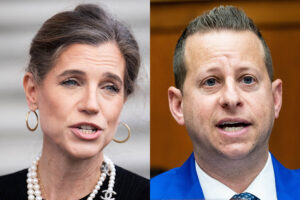The Dictatorship
Trump’s plan for a drug advertising crackdown faces many hurdles

WASHINGTON (AP) — Health Secretary Robert F. Kennedy Jr. and other administration officials are vowing a crackdown on deceptive drug ads, but the effort is likely to face multiple headwinds, including pushback from industry and layoffs among regulators tasked with leading the effort.
President Donald Trump signed a memo Tuesday that directs the Food and Drug Administration and other agencies to step up enforcement against ubiquitous prescription drug ads on TV, websites and social media.
The industry’s multibillion-dollar marketing efforts have long been a target for Kennedywho previously suggested banning all pharmaceutical ads from TV. That step would have almost certainly been struck down by federal judges, who have long accepted advertising as a First Amendment-protected form of speech.
Instead, Trump’s directive tells the FDA to use current laws to ensure “transparency and accuracy” in all ads.
But the FDA has long struggled to defend its actions against drug promotions in court. And reworking some of its key regulations — including those governing TV advertising — could take years.
Here’s a look at the administration’s plans and some of the hurdles that may lie ahead.
A promise for more FDA warnings after years of legal setbacks
The FDA kicked off its effort Tuesday evening saying it was issuing “thousands” of warnings to drugmakers over inaccurate or misleading ads.
But rather than individual notices citing specific violations, the FDA shared a generic letter that it sent to drugmakers, instructing them to bring “all promotional communications into compliance.”
The form letter is different from typical FDA warning letters, which usually cite specific issues with company advertisements that run afoul of FDA rules and lay the groundwork for future legal action.
The FDA’s press release noted that such warnings have fallen dramatically in recent years, with only one issued in 2023 and none in 2024.
Former FDA officials say that reflects two trends. First, the drug industry has abandoned many of the most egregious tactics deployed in the early 2000s, including the use of distracting sounds and visuals that often drew attention away from drug warnings and side effect information.
Additionally, the FDA has repeatedly settled legal cases challenging its authority to police drug promotions. The agency often declines to pursue such cases due to the risks of losing in court, which could create legal precedent eroding its power.
Looking ahead, recent Trump administration job cuts have slashed staffing in the FDA’s drug advertising division, which handles warning letters.
A plan to curb TV ads could take a very long time
One major proposal by the administration involves reversing a nearly 30-year-old FDA rule.
Until the late 1990s, TV drug advertisements were impractical and prohibitively expensive because FDA regulations required drugmakers to list each medication’s risks and side effects. A 1997 shift allowed companies to briefly summarize that information and point viewers to more complete information on websites, in print ads or elsewhere.
The FDA said this week it will begin the process to eliminate that practice, calling it a “loophole” used to “conceal critical safety risks.”
But the FDA rulemaking process usually takes years — sometimes more than a decade — with multiple opportunities for public comment and revision.
For example, new guidelines finalized last year that require clearer and simpler language in drug ads took more than 15 years to develop and implement.
If the FDA tried to skip steps or rush, drugmakers could challenge the process in court.
For its part, the industry maintains that TV ads are a way to educate and empower consumers.
“Truthful and nonmisleading DTC advertising is protected under the First Amendment and has documented evidence of advancing patient awareness and engagement,” PhRMA, the industry’s leading trade group, said in a statement Wednesday.
Influencers and other newer promoters may be beyond FDA’s reach
FDA Commissioner Marty Makary also suggested his agency will be more aggressive about policing ads on social media platforms like Instagram, where drugmakers often partner with patient influencers or doctors.
The agency has long struggled to oversee those promotions, because FDA advertising rules only apply to drug companies.
Social media influencers who are paid to endorse or promote products are supposed to clearly disclose that relationship. But that requirement is overseen by the Federal Trade Commission.
And in some cases, influencers aren’t being paid by anyone: They promote products in hopes of landing future endorsement deals.
The FDA has also been under pressure to crack down on advertisements from newer specialty pharmacies and telehealth companies. A Super Bowl ad from one company drew scrutiny earlier this year for promoting unofficial versions of weight loss drugs, touting their benefits without listing any of the risks or side effects. Disclosing that information is an FDA requirement.
Companies that connect patients to so-called compounded drugs say they are not subject to FDA rules because they are not traditional drug manufacturers.
A Senate bill introduced last year would bring influencers and telehealth companies clearly under FDA’s jurisdiction, requiring them to disclose risk and side effect information. But the legislation has not advanced or received a hearing.
___
The Associated Press Health and Science Department receives support from the Howard Hughes Medical Institute’s Department of Science Education and the Robert Wood Johnson Foundation. The AP is solely responsible for all content.
The Dictatorship
Charlie Kirk’s death leaves lawmakers on edge across party lines
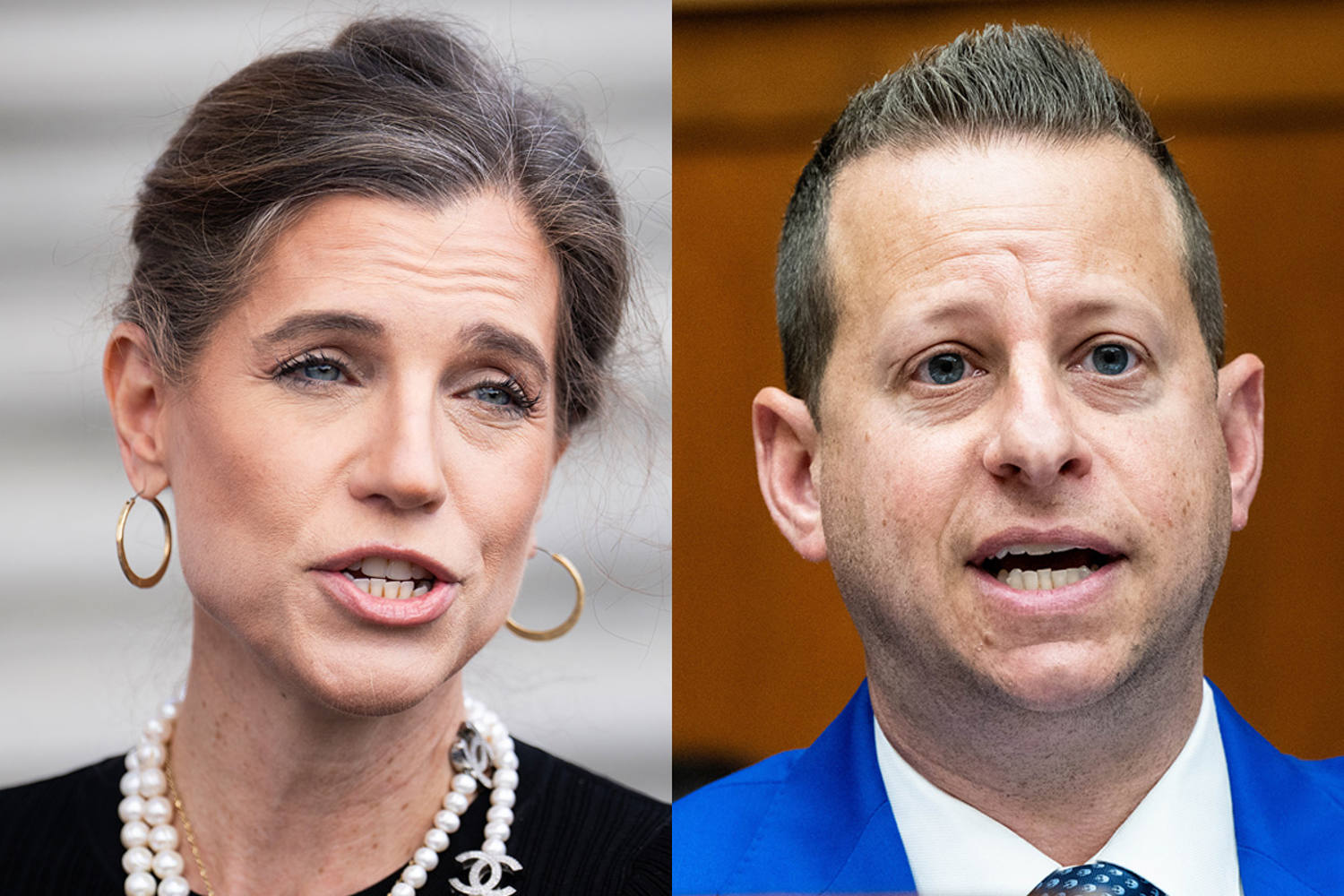
Lawmakers are on high alert after the assassination of conservative activist Charlie Kirkvoicing concerns about their safety and making calls for increased protection as the political atmosphere in the U.S. grows more tense.
Fears have been aired on both sides of the aisle. Democrats and Republicans, many of whom maintained a close relationship with Kirk, say they’re worried about their own security and that of their families, staffers and colleagues.
Some members of Congress are taking immediate action.
Rep. Alexandria Ocasio-Cortez, D-N.Y., is postponing two upcoming events in North Carolina, according to her office. Democratic Rep. James Clyburn, D-S.C., canceled events this weekend, though he asked his staff that a church service remain on the schedule. And Reps. Jared Moskowitz, D-Fla., and Nancy Mace, R-S.C., told BLN they are pausing public events in the near term.
Moskowitz — who was targeted last year by an armed man who has been sentenced to 25 years in federal prison for illegal firearms offenses — said he is concerned about the safety of the entire House of Representatives.
‘We all go to things like that. We all speak at colleges, we all go to public events, we all do parades. That could’ve been anybody.’
“I’m worried about everybody in that chamber, including myself,” Moskowitz said. “I’m worried about my Republican colleagues that are vocal on TV and social media; I’m worried about my Democratic colleagues who are vocal on TV and social media.”
He called the shooting death of Kirk, video footage of which quickly went viral, “shocking and terrifying and dehumanizing” and said it hits close to home for politicians who routinely make public appearances. “We all go to things like that. We all speak at colleges, we all go to public events, we all do parades. That could’ve been anybody,” he said.

Mace said she has requested police officers be stationed outside her offices, is doubling her security team and now plans to carry a firearm. She said she planned to go to a gun range this weekend.
“I never thought we would get to this place, but here we are. I think an invisible line was crossed,” she said. “I don’t even feel safe walking outside, I don’t feel safe being in my own vehicle, and I certainly don’t feel safe going anywhere without someone with a gun on my side or carrying myself.”
The fears and emotions among members were still raw two days after Kirk, the 31-year-old darling of the right, was fatally shot during an event at Utah Valley University on Wednesday, sending shockwaves and sparking fury through conservative circles, Washington and the entire country. Authorities announced Friday morning that Tyler Robinson, 22, had been apprehended in connection with the killing.
The newfound concern comes as threats against lawmakers have already been spiking. The U.S. Capitol Police told BLN on Friday that the agency is “on track to work through roughly 14,000 Threat Assessment Cases by the end of 2025,” a nearly 50% percent increase from the prior year.
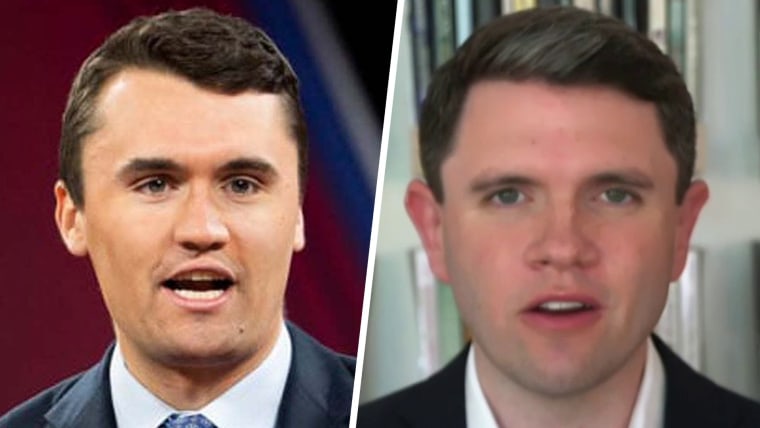
Capitol Police investigated 9,474 “concerning statements and direct threats” against members of Congress and their families and staff in 2024, compared to 8,008 incidents in 2023.
The stunning increase in threats against lawmakers is playing out against a heightened political environment nationwide, with attacks against politicians and activists on the rise. President Donald Trump has faced two assassination attempts, including the campaign rally incident in Butler, Pennsylvania, when a bullet grazed his ear.
And in June, Minnesota state Rep. Melissa Hortman, a Democrat, and her husband, Mark, were fatally shot at their homes. Another Democrat in the state Senate, John Hoffman, and his wife, Yvette, were critically injured after both were shot at their house the same night.
In the wake of Kirk’s assassination, members of Congress in both parties are demanding increased security.
The House Administration Committee in August temporarily increased members’ monthly security allotment from $150 to $5,000 a month to allow them to hire personal protection through the end of the fiscal year, which closes on Sept. 30. The action also gave lawmakers an extra $10,000 to pay for residential security systems.
“I hope the speaker extends that and makes it more permanent, and I think that’s necessary, but I also don’t think that’s sufficient,” Moskowitz said, predicting that every member will soon need one staff member dedicated solely to security.
Mace, a vocal Trump ally, agreed the temporary funding increase is “not nearly enough, particularly for the higher profile members who are outspoken.”
Speaker Mike Johnson told reporters on Thursday “there’s been a lot of discussion” about how to address security for members of Congress following Kirk’s death, and how to pay for it.
“We’re under a very thorough review of the existing options and how we might need to enhance that to ensure member security and safety,” he said. “It’s a big concern of all of them and their spouses back home and their families and, and everything. So there’s a cost associated with that. I mean, a financial cost that is significant.”
The question of increasing funding for members’ security could come to a head in the coming weeks, as Congress stares down a Sept. 30 deadline to fund the government or risk a shutdown. Several sources said additional funding for protection could be dealt with during the government funding process.
“We’ve gotta protect people who run for public office or no one will,” Johnson said.
Mychael Schnell is a congressional reporter at BLN, where she covers all happenings on Capitol Hill involving both Democrats and Republicans. She previously covered Congress at Blue Light News.
Mychael graduated from The George Washington University’s School of Media and Public Affairs with a bachelor’s degree in Journalism & Mass Communication and Political Science. She’s a native New Yorker, Billy Joel’s #1fan and a Rubik’s Cube aficionado.
The Dictatorship
Erika Kirk remembers her husband Charlie Kirk in first public address since his killing
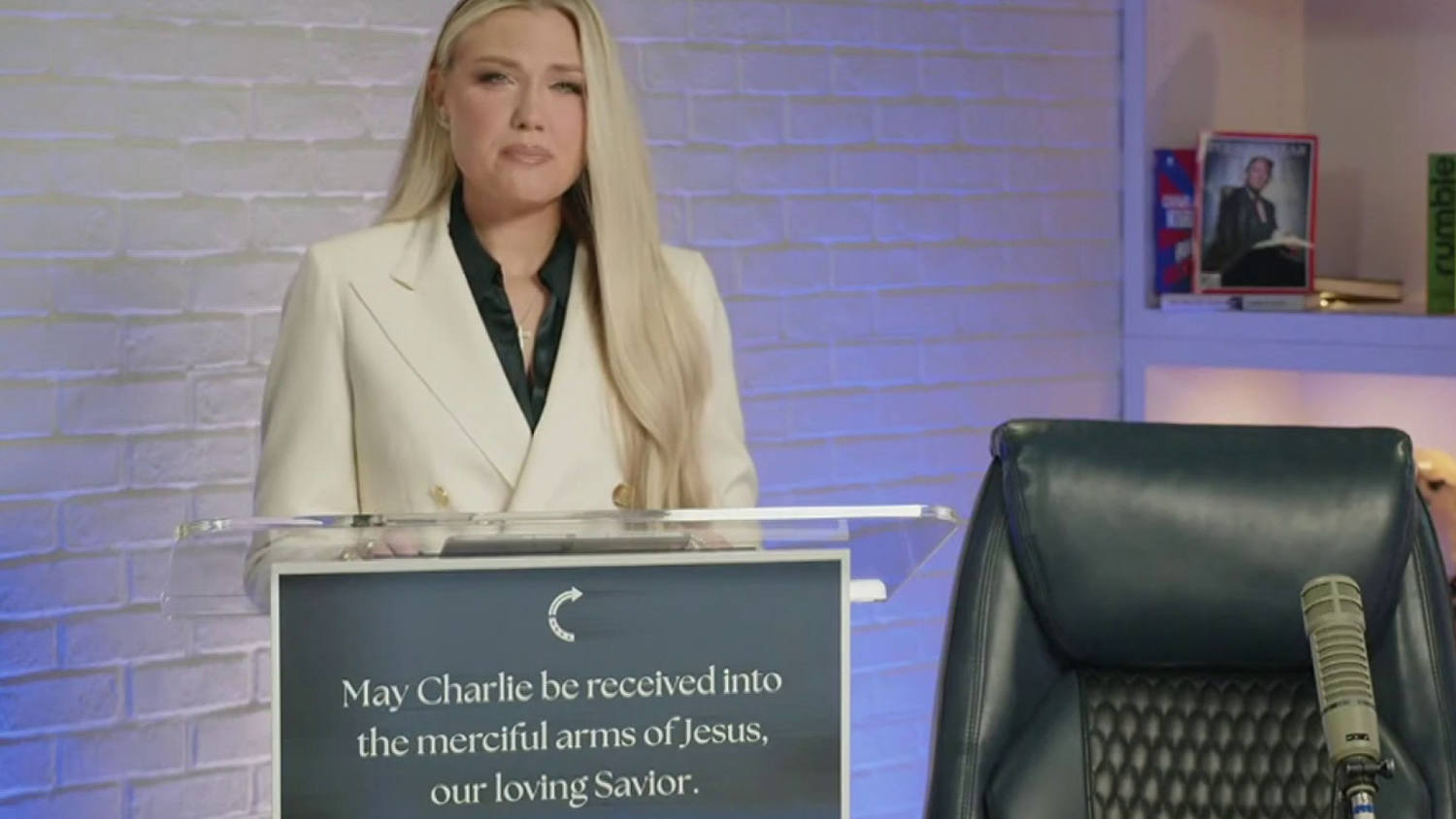
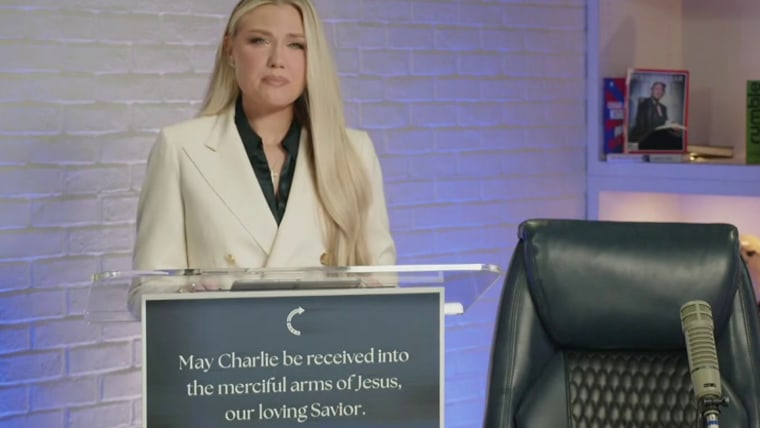
-
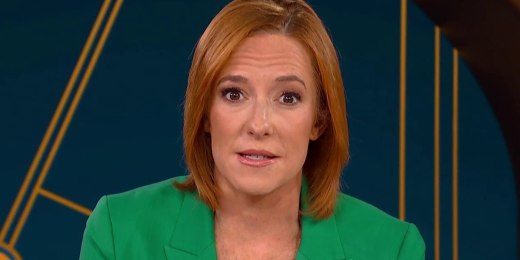
Psaki: National crises of political violence call for unifying leadership
08:18
-
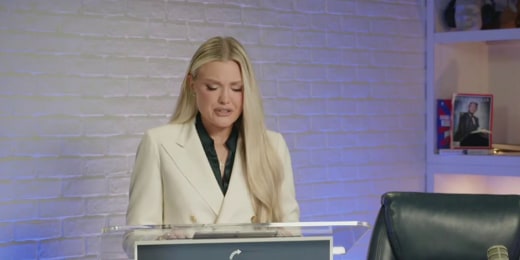
Erika Kirk delivers first public address since her husband Charlie Kirk’s assassination
02:37
-
Now Playing

-
UP NEXT
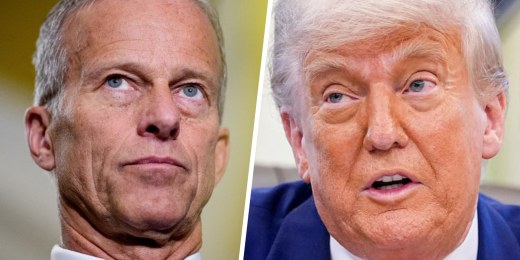
Ali Vitali explains the shortfalls of Senate Republicans’ nuclear option
08:20
-
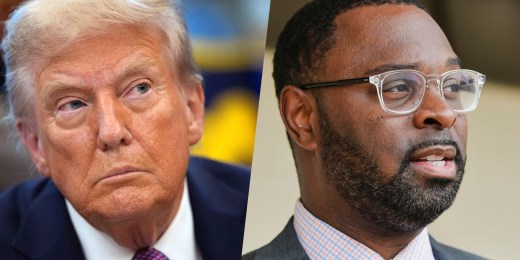
Memphis Mayor pressed on what the Guard would do in his city
06:27
-

Michael: ‘Brazil’s Supreme Court upholds the rule of law – in America, it doesn’t matter’
05:10
-

New emails reveal Maxwell ‘was not telling Todd Blanche the complete truth’: Lisa Rubin
07:44
-

Talarico: ‘Political violence has no place in America’
09:01
-

John Bolton search warrant affidavit released
02:07
-
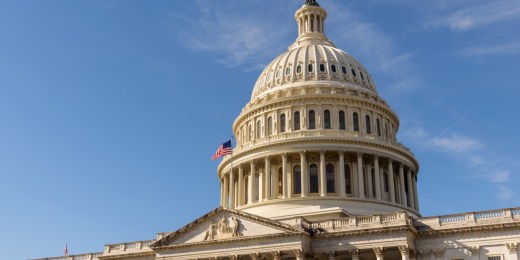
Lawmakers feeling ‘vulnerable’ and concerned about security: Ex-U.S. Capitol Police Chief
06:13
-

Lawmakers scale back public events after Kirk killing
06:20
-
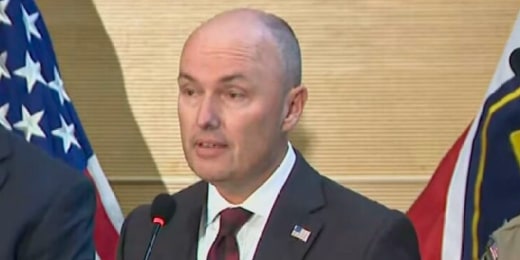
‘This is our moment’: Utah Gov. calls for ‘off ramp’ to political violence
14:47
-
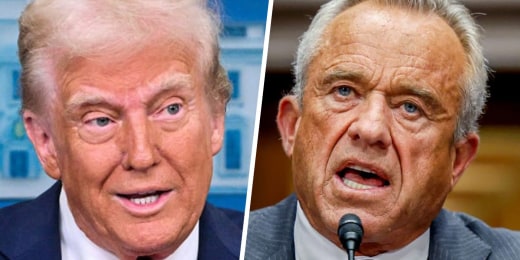
Trump admin to claim link between Covid shots and child deaths
05:40
-

Utah Gov.: ‘Hey fascist! Catch!’ written on bullet casing
09:21
-

‘We got him’: Utah Gov. on Charlie Kirk shooting suspect
14:11
-

‘Somber and harrowing’: The Weeknight marks the 24th anniversary of 9/11
04:14
-
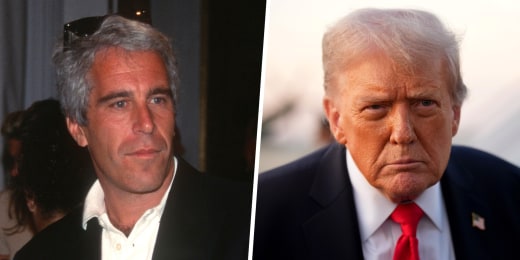
Congress inches closer to Epstein files
07:22
-

Rev. Al Sharpton: ‘Political violence has to stop’
08:10
-

‘Our country is in a really dark place’: Political violence on the rise in recent years
11:19
-
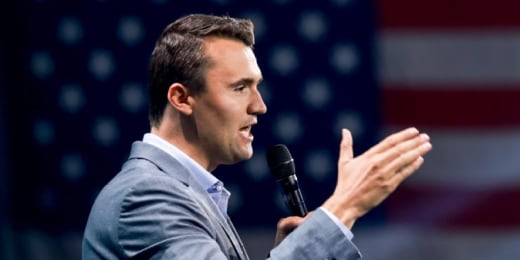
Bridging divide amid rising political violence
06:24
BLN
-

Psaki: National crises of political violence call for unifying leadership
08:18
-

Erika Kirk delivers first public address since her husband Charlie Kirk’s assassination
02:37
-
Now Playing

Erika Kirk remembers her husband Charlie Kirk in first public address since his killing
04:09
-
UP NEXT

Ali Vitali explains the shortfalls of Senate Republicans’ nuclear option
08:20
-

Memphis Mayor pressed on what the Guard would do in his city
06:27
-

Michael: ‘Brazil’s Supreme Court upholds the rule of law – in America, it doesn’t matter’
05:10
The Dictatorship
Justin Baldoni pushes to depose Taylor Swift in legal feud with Blake Lively



By Are Salam
Taylor Swift may be compelled to provide evidence in the long-brewing legal battle between Justin Baldoni and Blake Lively.
Baldoni’s legal team on Thursday requested that the federal judge in Lively’s case against him and his studio extend the discovery deadline to accommodate Swift’s schedule so she can sit for a deposition.
Lawyers with Venable LLP, a law firm representing the pop star, wrote to federal Judge Lewis J. Liman on Friday to clarify that Swift “has no material role in this action” but offered time in late October if a deposition is necessary. “We take no role in those disputes,” the lawyers added.
Lively’s representative, Michael J. Gottlieb, called Baldoni’s “disrespect for Ms. Swift’s privacy and schedule” “astounding” in a letter to Liman.
The legal saga between the celebrities began on the set of the film “It Ends With Us,” in which Baldoni played opposite Lively as the story’s main love interest (Baldoni also directed the film). Speculation about a possible feud began when the two opted to do press for the film separately when it was released in August 2024.
In December, the “Gossip Girl” star sued Baldoni and his Wayfarer Studiosalleging sexual harassment and retaliation for speaking out, accusations Baldoni has vehemently denied.
In January 2025, Baldoni released unseen footage from the film as part of an effort to defend himself. He and his studio countersued Lively and her husband, actor Ryan Reynolds, alleging defamation and extortion and seeking $400 million in damages. Baldoni also sued The New York Times for reporting on Lively’s accusations.
Baldoni attempted to subpoena Swift, claiming Lively had leveraged her friendships with famous people, like the singer, to gain creative control over the film. Swift’s legal teams successfully rebuffed the attempt. At the time, a representative for Swift told ABC’s “Good Morning America” that her involvement in the film was limited to the licensing of one of her songs, adding that “this document subpoena is designed to use Taylor Swift’s name to draw public interest by creating tabloid clickbait instead of focusing on the facts of the case.”
Baldoni’s legal team dropped the subpoena against Swift that same month, and his suits were dismissed by Liman in June.
The trial is scheduled to begin on March 9, 2026.
-
Uncategorized10 months ago
Bob Good to step down as Freedom Caucus chair this week
-

 The Josh Fourrier Show10 months ago
The Josh Fourrier Show10 months agoDOOMSDAY: Trump won, now what?
-

 Politics10 months ago
Politics10 months agoWhat 7 political experts will be watching at Tuesday’s debate
-

 Politics7 months ago
Politics7 months agoFormer ‘Squad’ members launching ‘Bowman and Bush’ YouTube show
-

 Politics10 months ago
Politics10 months agoHow Republicans could foil Harris’ Supreme Court plans if she’s elected
-

 The Dictatorship7 months ago
The Dictatorship7 months agoPete Hegseth’s tenure at the Pentagon goes from bad to worse
-

 The Dictatorship7 months ago
The Dictatorship7 months agoLuigi Mangione acknowledges public support in first official statement since arrest
-
Economy10 months ago
Fed moves to protect weakening job market with bold rate cut



